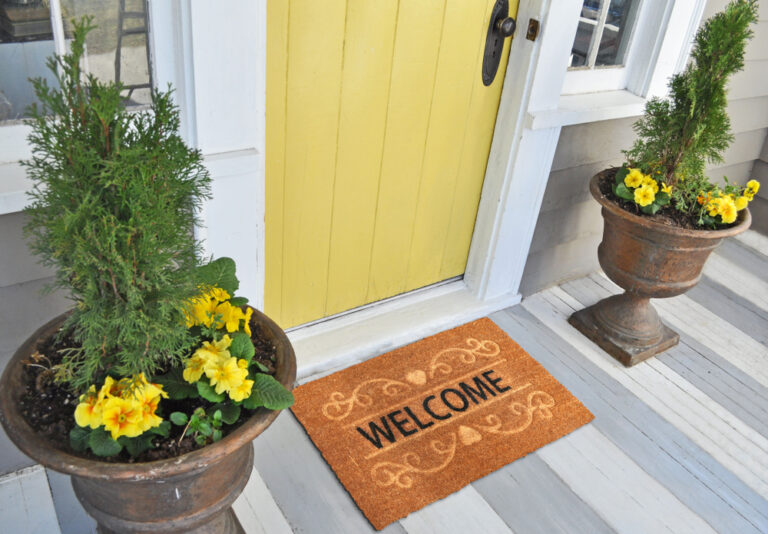Owning a buy-to-let can be a profitable decision, but like any investment, you’ll need to understand and carefully manage your finances.
Keeping track of your taxes and fees is essential as a property investor, so, here’s everything you need to know about the taxes and fees applied to buy-to-let properties.
What is a buy-to-let mortgage?
A buy-to-let (BTL) mortgage is slightly different to that of a traditional mortgage. Since you’re buying the home with intention of renting it out, your BTL mortgage will likely be interest-only. This means you pay the interest each month, not the capital amount. When the mortgage term ends, you will repay the original loan in full.
The amount you can borrow for your BTL property will depend on how much rent you expect to generate from it. Most lenders will expect to see a rental income of 25% to 30% over and above your monthly repayments.
Find the right mortgage deals for you.
What taxes come with a buy-to-let property?
BTL properties are subject to several taxes, regardless of whether you own a single property or multiple properties.
Income Tax
Money generated through renting out a home is considered income in the eyes of the law, so income tax is likely to apply to your buy-to-let property. Any rent you recoup from renting out a property must be declared when completing your Self Assessment tax return.
Capital Gains Tax
If you decide to sell your BTL property, it will likely be subject to Capital Gains Tax. If you sell your property for more than you paid for it, then you are making a profit, or ‘gaining capital’, and therefore Capital Gains Tax will apply.
However, this tax is charged on the profit you make and not the price you bought the home for. You can also deduct any expenses linked to selling the house, such as advertising costs and solicitor fees.
Related: Capital Gains Tax on Buy-to-Let: What you need to know
Stamp Duty
Stamp Duty is a tax applied to the purchase of a property, but the amount varies depending on the price of the property, whether you own more than one home, and where it is located.
In England and Northern Ireland, you can expect to pay a 3% surcharge on the standard Stamp Duty rate for any Buy-to-let property worth less than £250,000.
As of 2024, the following rates apply:
- 3% – On the first £0 to £250,000
- 8% – From £250,001 to £925,000
- 13% – From 925,001 to £1,5000,000
- 15% – Over 1,500,000
Inheritance Tax
Inheritance Tax (IHT) is a tax on the estate (the money, property, and possessions) of someone who has died. Your BTL property will form part of your estate for IHT purposes.
Therefore, if you are operating as a sole landlord – meaning that the buy-to-let mortgage is in your name only – then Inheritance Tax will be payable if your property’s value exceeds £325,000.
The standard IHT rate is 40%, and is only charged on the part of your estate that is above the threshold. The amount payable for your specific property will depend on your individual circumstances. For any long-term planning, it’s important to speak to a professional financial adviser.
What fees come with a buy-to-let?
Much like buying any property, BTLs come with several ongoing costs and upfront fees which you’ll need to factor into your budget.
Buying the property
Buying the home itself will call for a number of upfront costs, with rates depending on the property itself and how you wish to use it. While below is not an exhaustive list, fees associated with buying a BTL include:
- Solicitor fees – This covers the administrative cost of setting up your mortgage.
- Valuation – Some lenders may require that a valuation is carried out before accepting your application.
- Searches – You may be given the choice to pay for searches upfront when your mortgage application is complete, or have them included in your monthly mortgage repayments.
- Land Registry Fees – This covers the cost of the legal process for change of ownership, as well as adding or removing any mortgages or other entries on the deeds.
Related: How to invest in property
Certificates and legislations
It is a legal requirement that all rental homes are fully compliant with current legislation. This is to ensure the safety and wellbeing of your tenants, and therefore it’s important to budget generously when it comes to certificates and legislations. Your property should have:
- An Energy Performance Certificate (EPC)
- A Gas Safety Certificate
- An Electrical Safety Certificate
- A Fire Safety Check
- Deposit protection information
- A Legionella risk assessment
Making the property fit to live
As a landlord, you must ensure that your property is ‘fit for human habitation’, which means that it is a safe and healthy environment and free from things that could cause anyone in the household serious harm.
The UK’s fitness standard lists the minimum requirements in all rented homes for:
- Lighting
- Heating
- Ventilation
- Hot and cold water
- Cooking facilities
- Drainage
If your property does not meet the minimum fitness standard, then you may have to pay out to make home improvements before you can rent it out to tenants.
Related: What landlords need to know about the Renters (Reform) Bill
Letting and landlord fees
Since rental homes require regular maintenance and correspondence with tenants, managing a rental property takes up a lot of time and energy. A letting agent will charge a monthly fee to take care of everything – from finding tenants and collecting rent, addressing tenant queries and complaints, to organising maintenance and repairs.
Insurance
Most buy-to-let lenders will require landlord insurance as a condition in your contract. This is because standard home insurance policies will not offer the correct coverage to protect against the unique risks of letting.
Landlord insurance is a type of specialist insurance that’s designed for buy-to-let properties.It provides protection for your property and can be tailor-made to fit your specific needs as a landlord. For example, it may cover the cost of unpaid rent or legal disputes with tenants.
Related: What insurance do you need as a landlord?
Are you looking to invest in a buy-to-let?
We offer a wide selection of resale properties and off-plan developments available across the Midlands, North Wales and the North of England, suitable for every type of investment.
You can rely on Whitegates to locate ideal properties for your investment portfolio thanks to the assistance of our committed team and our extensive lettings and property management experience.
For more landlord advice, contact the dedicated lettings team at Whitegates
Further reading…
The top things you should consider before becoming a landlord




